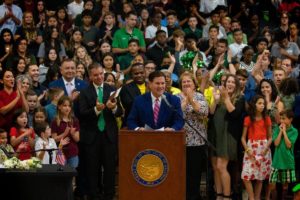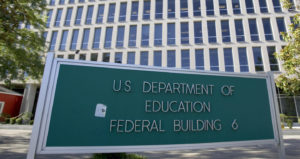Florida public school teachers who left for private education happy they did so
Florida teachers who left public education for private report they are happier, freer and more morally aligned in their new roles, according to a recent survey.
The survey of nearly 200 such…

Florida teachers who left public education for private report they are happier, freer and more morally aligned in their new roles, according to a recent survey.
The survey of nearly 200 such Florida educators also found that they made the switch primarily to be in environments that are “more in line with their morals and values.”
The survey, conducted by the Florida nonprofit scholarship organization Step Up for Students, reports that 92% of those who made the change to private schools described themselves as “more satisfied” or “far more satisfied” with their new environments.
Teachers and administrators listed four primary reasons for greater satisfaction with their new private school jobs:
- better alignment with morals and values (67.9%)
- more freedom to teach (66.7%)
- less bureaucracy (62.9%)
- less pressure from standardized testing (61.6%)
The majority also listed smaller class sizes (56.6%) and greater parental support (52.2%) as contributing to happiness in new roles.
“Our survey is but one snapshot of a fast-changing landscape in public education,” authors Ron Matus, Dr. Amy Stringer and Dr. Ronda Dry wrote, summarizing the results. “Teachers appear to be signaling their preference for educational environments that maximize their autonomy.
“Policymakers in Florida and beyond who are wrestling with challenges in teacher recruitment, retention, and satisfaction should respond accordingly.”
The survey’s findings echo an April paper released by Step Up for Students and EdChoice based on interviews with 10 former public school teachers and administrators who had left public education to start their own private schools.
Those educators’ motivations for leaving included frustrations with public schools and standardized testing; a desire to create better options for their own children; and a desire to create alternatives that would work better for both students and teachers.
“Florida is full of gutsy teachers who left district-run public schools to create their own diverse, distinctive learning models in line with their visions and values,” the paper’s authors wrote. “[They] are catering to growing numbers of Florida families who now have the power to choose these models, or not.”
Florida has seen massive growth in school choice over the last 10 years, with school choice scholarships increasing from 64,439 to 215,817 over that time. Step Up for Students, which administers four education choice scholarships for the state, expects to serve nearly 300,000 students in the current school year.



